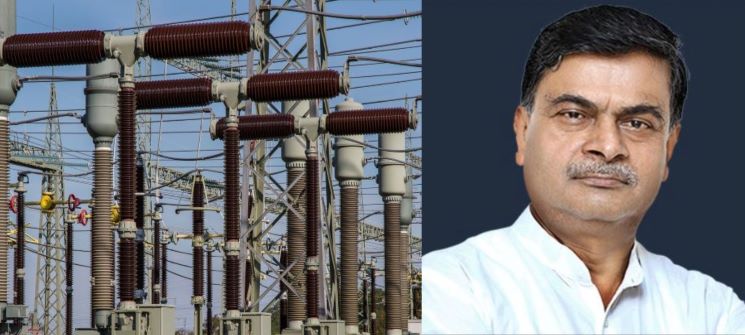

Troubles At Thermal
In a somewhat belated response to a series of stories that came out last week about the ‘distress’ in the thermal power sector , Shri R.K. Singh, India’s MNRE Minister has responded, with some exasperation, one might say to claims of pain in the thermal sector due to a ‘slowdown’. The minister was referring to headlines that mentioned how thermal plants PLF (plant load factor or production efficiency vis a vis rating or capacity) fell to an all time low in October of 48.9 %. In fact, the drop below 50% was the first time since April 2011. The stories blamed it on lack of growth in electricity consumption, a key determinant for measuring economic growth.
The minister, in a series of tweets, has attacked both the premise, and implications of these stories.
Calling the conclusions ‘nonsensical’, the minister pointed out that power demand actually grew in the first two quarters of the year by 7.4% and 1.6% respectively. Even in October, when there was a de-growth, the ‘blame’ if any lay with the unusually extended monsoons, which reduced demand from agriculture significantly.
In fact, he took credit for the lower PLF in a way claiming that this was more due to the steps taken by the ministry to lower the country’s carbon footprint and changing energy mix, while also adding that the April-October period has witnessed an impressive 16% growth in Hydro power generation, which would have impacted demand for thermal generation too.
On the face of it, the ministers’s contentions make sense, and we would tend to agree with his assertions. However, he has ignored a key issue that the articles were possibly trying to highlight. That as one ‘clean energy source’, namely, share of renewables in the energy mix grows, we don’t really seem to have a politically palatable answer for handling the corresponding drop in the ‘dirty’ thermal sector, which was in any case in deep distress. Some will argue that a large part of the stress is the sector’s own doing, especially for plants built on the premise of cheap imported coal or even domestic gas, but there is real challenge of managing the energy transition without leaving a trail of bad debts that could eventually threaten the transition itself.
Financial institutions have repeatedly highlighted that at a PLF under 60%, thermal plants struggle to service their loan obligations, broadly. With over $40 billion stuck in the sector still, it’s just another problem that is looming closer with every month. Despite India seemingly committed to a high usage of thermal power well into the next 25 years and more. For the record, in October this year, total aggregate demand was 164GW , versus 171 GW last year.
For now, as winter sets in, usually a period of lower power demand in any case, there is no immediate relief for the plants in distress, although interestingly, with state discoms giving virtually every power producer the same treatment of delays, curtailments and even renegotiations in the case of Andhra, its not like the rest of the power sector is in the pink of health. In fact, the news this week threatens to place renewable producers, especially solar producers in the same boat as thermal power producers, if draft proposals being bandied around to drop net metering and shift to gross metering for solar power make progress.
Like the telecom sector, its clear that the only way out will be for a more realistic pricing of power by large segments of consumers, besides reining in inefficient(state) and profiteering (private) discoms to an extent.
India’s ethanol initiative has helped India save Rs. 1,26,210 crore in foreign exchange by reducing…
Noida-based green energy leader NexGen Energia Ltd has secured a $1 billion equity investment commitment…
As Odisha takes firm steps toward a just transition from fossil fuels to renewable energy,…
Bio-Integrated cladding for greener cities, an innovative solution by a 29-year-old Indian architect, has won…
In a novel move, Farmwatt Innovation has launched a long-term training and capacity-building initiative focused…
State owned Bharat Petroleum Corporation Ltd (BPCL) has joined hands with GPS Renewables Pvt Ltd…